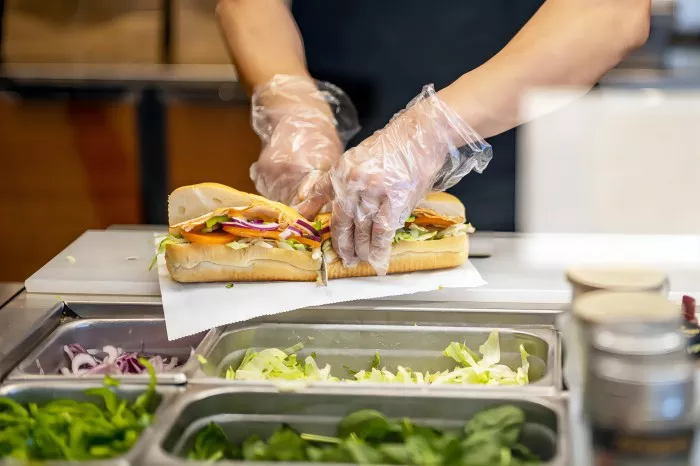Statistical Data of Fast Food Franchise Locations
While McDonald’s has the most locations of any fast food franchise in the world, with over 39,000 restaurants in over 100 countries, Subway owns the most number of franchise (over 44,000 locations) locations in the world.
Other fast food franchises with a large number of locations include:
Starbucks (over 33,000 locations)
kfc” target=”_blank” rel=”noopener” title=”KFC” data-wpil-keyword-link=”linked”>KFC (over 24,000 locations)
Pizza Hut (over 18,000 locations)
Burger King” data-wpil-keyword-link=”linked”>Burger King (over 17,000 locations)
Domino’s Pizza (over 17,000 locations)
Taco Bell” data-wpil-keyword-link=”linked”>Taco Bell (over 7,500 locations)
Dunkin’ (over 12,900 locations)
Wendy’s (over 7,000 locations)
The number of locations will vary over time due to openings, closures, and acquisitions.
About Subway
Subway, an American fast food restaurant franchise renowned for its submarine sandwiches (subs) and salads, stands as one of the globe’s largest fast food chains, boasting over 44,000 outlets spanning across more than 100 countries.
History
1965:
Subway was founded by Fred DeLuca and Peter Buck in Bridgeport, Connecticut.
Originally named “Pete’s Super Submarines.”
1968:
Rebranded as Subway to emphasize its focus on submarine sandwiches.
1974:
Opened its inaugural franchise location in Wallingford, Connecticut.
1984:
Emerged as the largest submarine sandwich chain worldwide.
1990s:
Experienced rapid domestic and international expansion.
Introduced new menu offerings like salads and wraps.
2000s:
Continued robust growth, solidifying its position as a major global fast food chain.
Faced controversies, including disputes over the legal definition of its bread in Ireland.
2010s:
Expanded menu to include breakfast sandwiches and pizza.
Confronted legal challenges, such as lawsuits alleging the absence of tuna in its sandwiches.
2020s:
Maintains status as one of the world’s largest fast food chains, boasting over 44,000 outlets in 100+ countries.
Confronts challenges from competitors and shifting consumer preferences.
Throughout its journey, Subway has remained committed to offering fresh, customizable sandwiches at an affordable price. The brand is recognized for its aggressive expansion tactics and utilization of celebrity endorsements.
Menu: Subway’s menu is diverse, offering an array of submarine sandwiches, salads, and sides. Customers have the freedom to tailor their sandwiches by selecting from a plethora of bread options, meats, cheeses, vegetables, and sauces. Additionally, Subway provides a selection of pre-made sandwiches like the Meatball Marinara, Tuna, and Turkey Breast.
Business Model: Operating under a franchise model, Subway grants individual franchisees ownership and management rights over their respective restaurants. Franchisees pay an initial franchise fee alongside ongoing royalties, receiving training, support, and marketing materials from Subway.
Growth and Expansion: Subway’s expansion has been remarkable since its inception, cementing its status as one of the leading fast food chains globally. Its reach extends both domestically and internationally, penetrating over 100 countries. The company’s rapid growth is attributed to its commitment to delivering fresh, customizable sandwiches at an affordable price point.
Controversies: Throughout its history, Subway has found itself embroiled in several controversies:
1. Bread Quality: In Ireland, there have been allegations that Subway’s bread fails to meet the legal definition of bread.
2. Tuna Content: Lawsuits have been filed alleging that Subway’s tuna sandwiches contain no actual tuna.
3. Spokesperson Controversy: The company faced criticism for its association with the spokesperson Jared Fogle, who was later convicted of child pornography charges.
Despite these challenges, Subway remains a favored fast food destination, celebrated for its customizable sandwiches and widespread availability.


